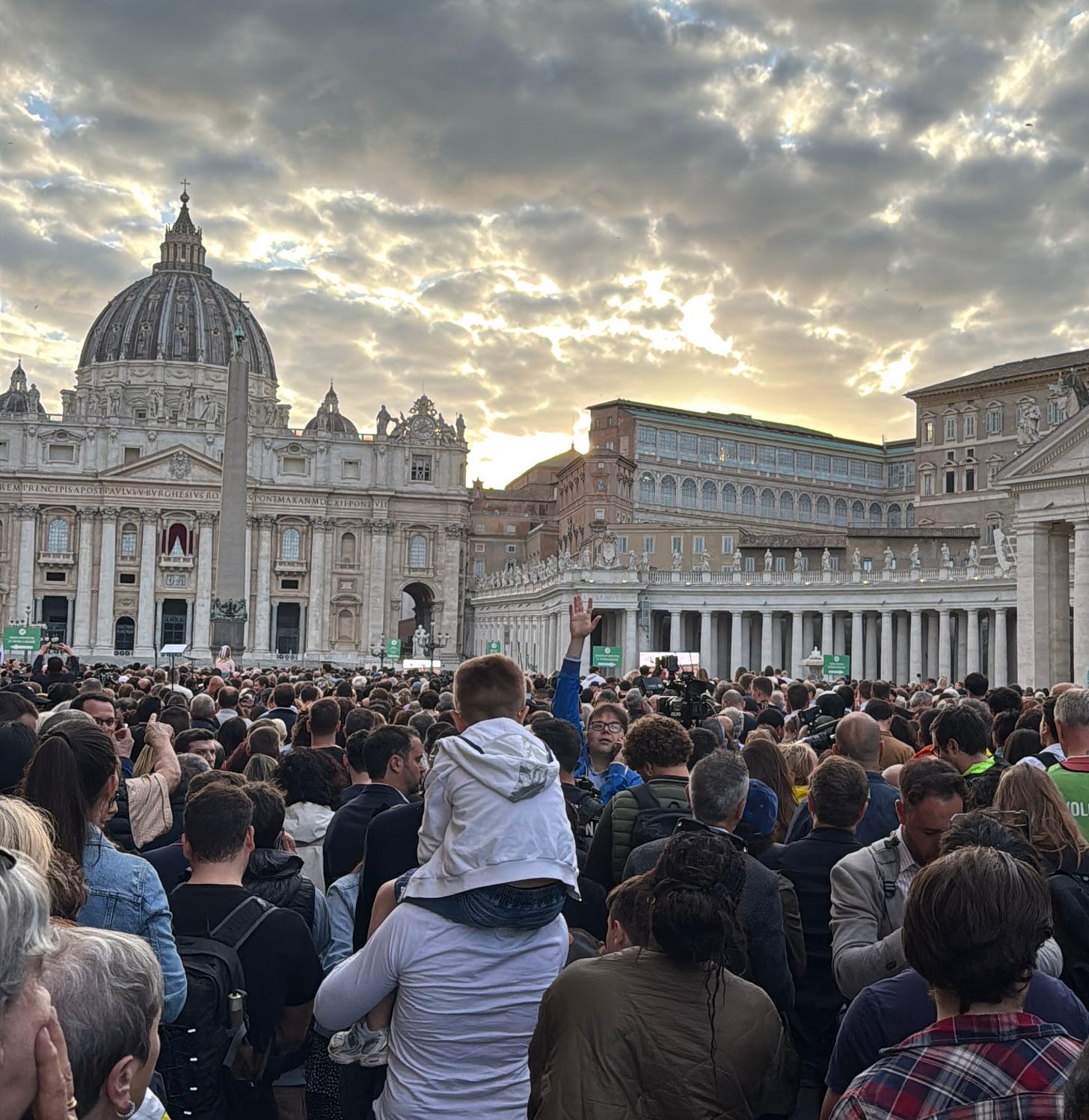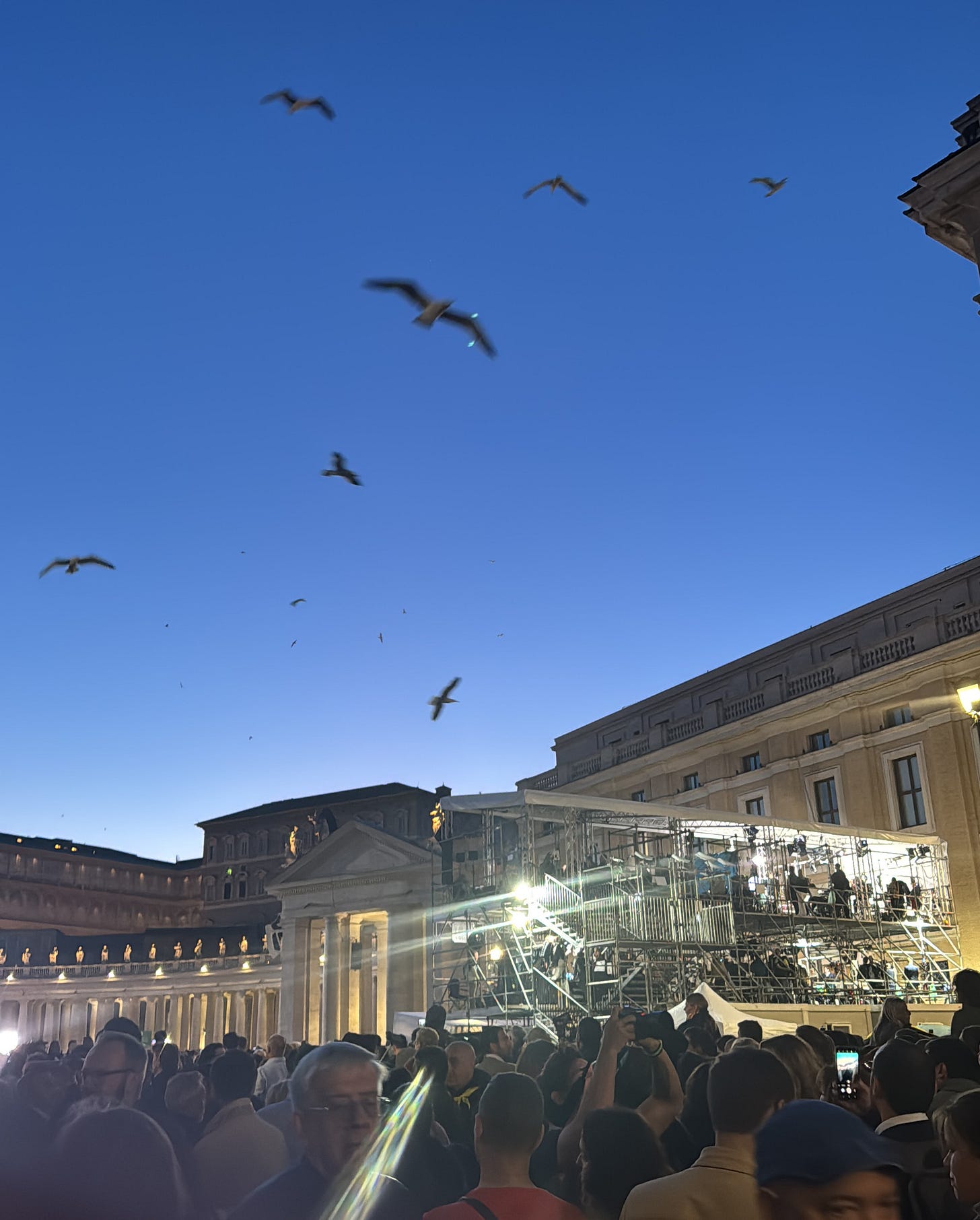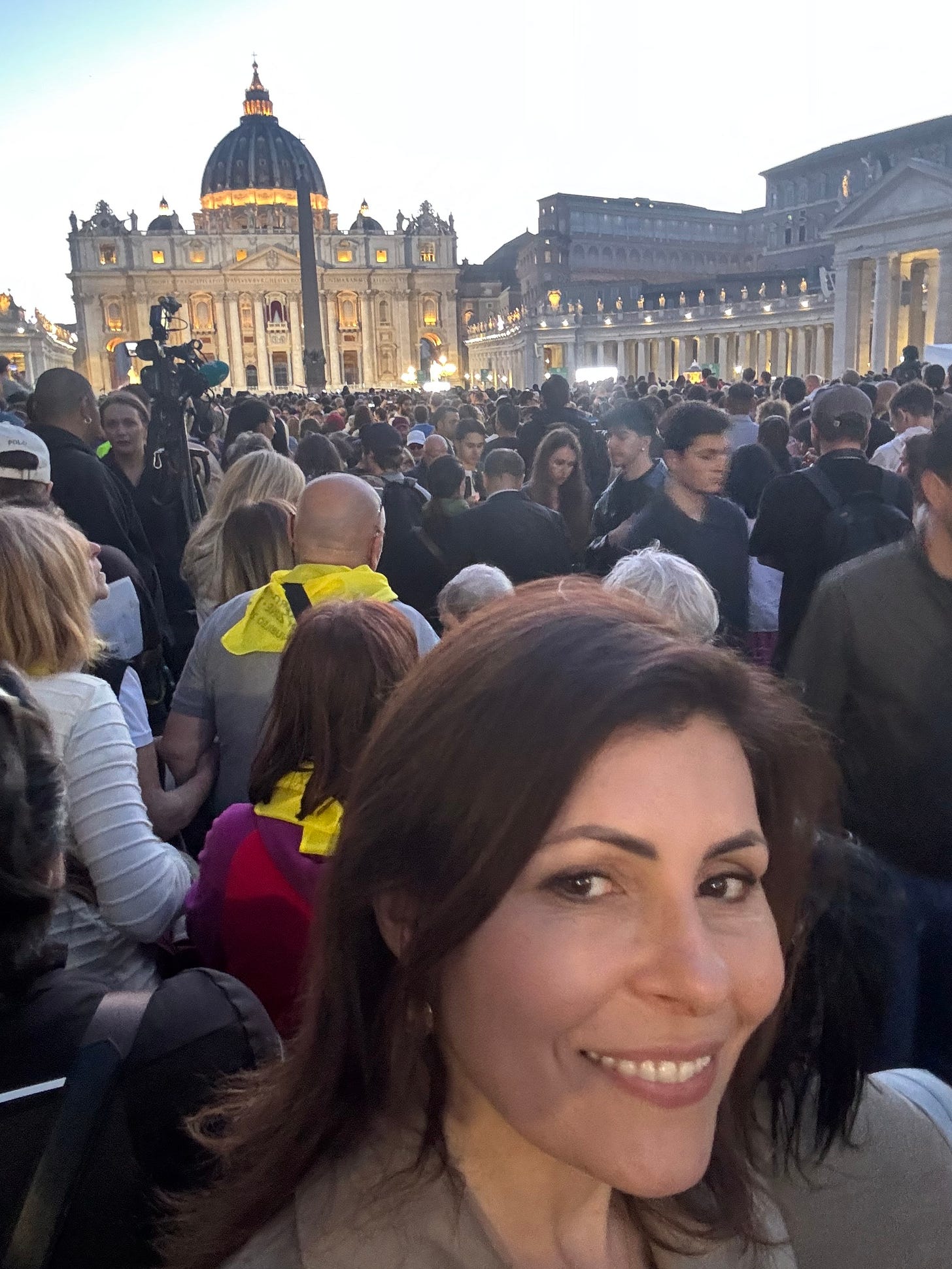Hello from Rome where I am following the Conclave, the process by which 133 Cardinals from around the world will elect the new leader of the Catholic Church.
I wrote this piece for Sky News on the main issues around the election of the next Pope and what it could mean for the future of the Church. And here’s a clip from my Al Jazeera days covering the 2013 conclave which elected Pope Francis as proof that this is not my first ecclesiastical rodeo.
Considering there are around 1.4 billion catholics around the world, the election of a new Pope is always a huge story and is covered extensively. But in this newsletter I want to focus on an aspect that hasn’t been explored as much: The language of the conclave.
The idea came from a question I was asked by Stig Abell on the Times Radio Breakfast show on Wednesday morning which stumped me a little. “What language do they speak in the conclave?”
I knew what the official answer was, but I also knew it didn’t paint the whole picture. The official language of the conclave, and the Vatican in general, is Latin. The oath taken by the cardinals as they enter the Sistine chapel is in Latin (Cardinal Pizzaballa apparently has the ‘most elegant’ Latin of the conclave, according to some Vatican watchers). The new Pope will be presented on the balcony of St Peter’s Basilica with the Latin words ‘Habemus Papam’ - We have a Pope.
But that’s the theory. In reality, Italian is the common language of the Vatican, the so-called lingua franca, for historical and obvious geographical reasons. Pope Francis himself was no big fan of the extensive use of Latin. Apart from controversially restricting the celebration of the Latin Mass, he also changed the official language of the worldwide gathering of Bishops from around the world (known as the synod) from Latin to Italian, early on in his Papacy more than 10 years ago.
So Italian is the language of the Vatican’s day-to-day business. However the conclave is anything but that. It’s a representation of the Church’s global nature, with cardinals coming from all corners of the world to make the most crucial decision of their lives. Francis intentionally appointed cardinals to further represent the global south, to give millions of catholics outside the West more of a voice - in this case, a voice that by its very nature may not be as fluent in Italian as a European’s who has spent considerable time in Rome.

The official language during the Congregations of Cardinals in the past weeks leading up to the Conclave was Italian, apart from prayers that were recited in Latin. Certain bilingual cardinals would be in charge of translating the Italian into other languages during the discussions. It would be safe to infer that the same thing happens during the conclave.
Back in 2013, in congregations before the conclave, the then-Cardinal Bergoglio was in charge of translating what was being said in Italian into Spanish for all the Spanish-speaking cardinals, including most of the South American ones. He went on to become Pope Francis. There is obvious influence in translation. So much so that the knowledge of Italian is one of the factors that determines whether a Cardinal is considered papabile, a possible Pope, in the weeks of speculation which precede any conclave.

There’s a nod to the language issue in THAT 2024 film: Conclave with Ralph Fiennes, Stanley Tucci and one of the most jaw-dropping final twists of recent times. There’s a scene where, during a communal meal in between voting sessions, an Italian cardinal points out that all the cardinals in the dining hall have clustered by language: Italian speakers here, English speakers there, Spanish speakers somewhere else. Had they all had Latin as a common language, he lamented, they could all have sat together.
The use of Latin is a divisive issue in the Church. So far the choice is between a dead language and a relatively small European one. The direction the Church will take on the issue of laguage will be one of the many decisions for the man chosen to be its next leader.





Very good point Barbara and interesting on so many levels. The Church is one of the most important global institutions at a time when globalisation is being eroded mostly from anglosaxon powers and so it fascinating to discuss the role of English in the Church and its lack of preminence for geographical and historical reasons as an element that drives the Catholic Church away from America
Fascinating. I just watched Conclave and wondered a lot about the language issue. Thank you for clarifying. Still, I wonder how many of the Cardinals can function at all in either Italian or Latin.